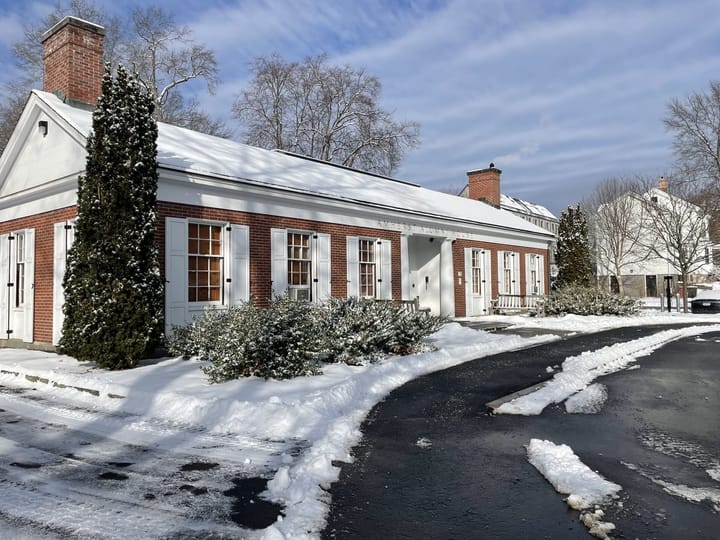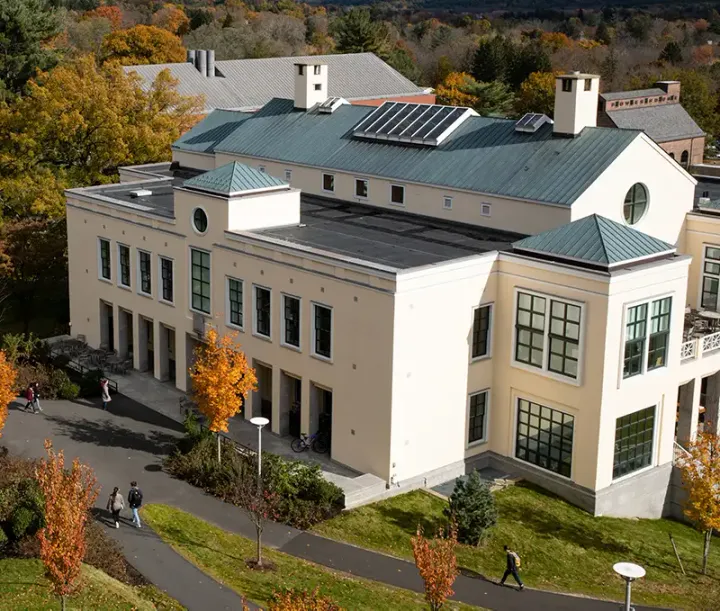Administration Affirms Support for A/P/A Studies in AAAN Meeting
Leaders of the Amherst Asian Alumni Network (AAAN) met with members of the administration on Oct. 6 to discuss the open letter they published calling for A/P/A studies. The administration affirmed their support of pursuing an A/P/A studies major at the college.
On Oct. 6, the Amherst Asian Alumni Network (AAAN) met with President Biddy Martin and Provost and Dean of the Faculty Catherine Epstein over Zoom to discuss their open letter calling for an Asian/Pacific/American (A/P/A) studies major at the college.
The open letter, published on Aug. 10, outlined several demands pertaining to creating and sustaining an A/P/A studies department. The letter has garnered over 400 signatures from the college community. The Oct. 6 meeting was the first meeting the AAAN has had with members of the administration about the demands outlined in the letter.
Six AAAN leaders — Kiko Aebi ’16, Jenny Li ’16, ShoYoung Shin ’19, Miu Suzuki ’16, Christina Wang ’16 and Olivia Zheng ’20 — attended the meeting with Martin and Epstein.
During the meeting, Martin and Epstein expressed support for the demands called for in the letter. “We support expanding opportunities to study the Asian-American experience, up to and including the creation of a major. This would have to include the hire of more scholars focused on Asian American studies,” said Epstein in a statement to The Student. “We believe that it's really important for students to be able to study their own group experience, as well as for all students to have the opportunity to study the group experiences of their peers.”
Leaders of the AAAN relayed that Martin indicated during the meeting that she believes that the college will eventually have an A/P/A studies major, which she deems to be crucial. Additionally, she stated that she would like to see progress in the fight for A/P/A studies before she leaves, measuring progress as movement toward searching for and hiring faculty in A/P/A studies that will support a major over time.
In response to the AAAN’s demand for a formal and public commitment to establishing A/P/A studies from the college, however, Martin expressed the need to be cautious about what she says given faculty prerogatives with regard to making decisions on the curriculum.
Martin and Epstein addressed several of the AAAN’s other demands in the meeting as well. The formation of a working committee on the creation of the major, for instance, will be discussed with Associate Provost and Associate Dean of the Faculty Pawan Dhingra. As for new pathways for the hiring of A/P/A studies scholars across departments, Dhingra will be working with departments to develop a cluster hire proposal for A/P/A studies, which will be discussed and voted on by The Committee on Educational Policy (CEP) in March 2022. If approved, faculty searches for up to three additional full-time equivalents (FTE) in A/P/A studies would occur over the next two academic years.
The next meeting between Martin, Epstein and the AAAN will be scheduled for December 2021.
Leaders of the AAAN expressed feeling hopeful after the meeting. “The meeting was very promising,” said Aebi. “It really does seem like Biddy and Epstein are aligned in that this is an important thing. Asian American studies is something that Amherst should have, and so I think being on the same page about that in and of itself is definitely a very good step in the right direction.”
Zheng agreed, but noted that support for A/P/A studies will also have to come from beyond Martin and Epstein if the major is to become reality. “At the end of the day, if we want this to become a major, it’s something that has to go to a faculty vote,” she said. “And if we want more professors to be hired in this area, departments have to be hiring new faculty for A/P/A studies, so we appreciate the administration’s support, [but] I think there needs to be a lot more support all across the school.”
Mica Nimkarn ’24, senior chair of the Asian Students Association (ASA) and junior chair of the Asian Pacific American Action Committee (APAAC), drew attention to the long history of advocacy that preceded the administration’s support of the major. “The administration has been delaying and dodging requests [for A/P/A studies] for arguably too long,” she said. “Students and alumni have put so much work, time and emotional labor into this cause and we are happy to see progress being made, but it came out of so much unnecessary frustration from the part of Asian Americans.”
Indeed, the AAAN’s recent call to action is part of a larger student-run movement that has been demanding the establishment of an A/P/A major at the college since the 1970s. When asked about their motivations to continue in the fight for A/P/A studies at Amherst, leaders of the AAAN reminisced on their personal motivators, highlighting the importance of continuing student and alumni activism on and off campus.
“I believe in the power of people and that the collective whole can achieve so much more than the individual,” said Suzuki. “There are a lot of uncertainties, but we do know that, in time, a major will form. We need to keep having these conversations … to ensure that this movement continues and doesn't get deprioritized.”
Shin commented on how the name of the advocacy group on campus has changed over the years, but the nature of the work has not. “Even as the nomenclature has changed, students are the ones that are really leading this, and doing that work,” she remarked. “So no matter where we are, in 2025 or 2030 . . . our support for students and working with them — we hope to continue to do that throughout the years.”





Comments ()